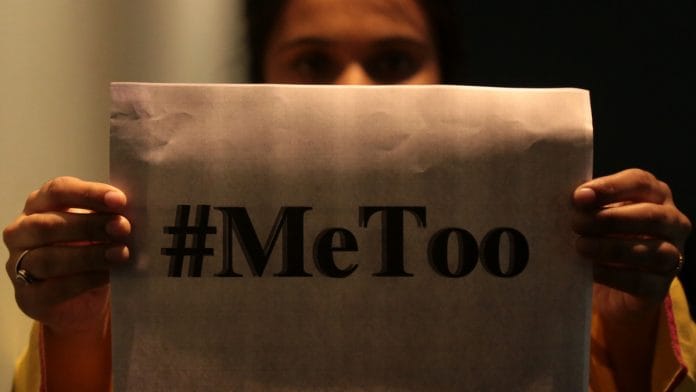Southfield: Bit by bit, corporate America is rewriting the rules of office romance—and raising the stakes for top executives.
For years, consensual affairs were often overlooked, even when they violated company policy. But now, for the second time in a month, a senior U.S. executive has been dismissed for having a relationship with an employee, a sign that workplaces may have changed in the #MeToo era.
“Companies are signaling they are finally taking this seriously,” said Davia Temin, founder of crisis consultancy Temin and Co., which has tabulated a list of 1,400 high-profile examples of executives and other well-known people ousted or disciplined for misbehavior related to sexual harassment and similar misconduct in the last two years. “This does damage to the company, not just reputational damage, but serious managerial damage could ensue, depending on their succession planning.”
BlackRock Inc. on Thursday fired Mark Wiseman, global head of active equities, over a consensual relationship that violated company policy. He had been seen as a potential successor to CEO Larry Fink. BlackRock’s global head of human resources, Jeff Smith, was also dismissed in July for breaking company rules, as Fink cracks down on misconduct by top lieutenants.
McDonald’s Corp. fired Chief Executive Officer Steve Easterbrook a month ago because he had a consensual relationship with an employee. He had been praised as a strategist leading the company’s charge into online ordering and delivery. That termination was similar to Intel Corp.’s decision to remove Brian Krzanich as CEO in June 2018 after the chipmaker learned of his relationship with an employee. At the time, Krzanich was seen as key to Intel’s success.
The focus on CEO behavior is part of a broader trend toward board attention to environmental and social issues, said Rachel Rosenblatt, a managing director with FTI Strategic Communications who specializes in reputation management and crisis communications.
Also read: One year after India’s big #MeToo wave, a reality check
“The tide has even turned on that in the last 12 months, where companies at all levels and boards are thinking really strongly about reputations,” she said. “This issue of workplace relationships in many ways is part of that overall theme.”
Executive behavior has been in the spotlight again since allegations of sexual assault and harassment in October 2017 toppled movie producer Harvey Weinstein and kicked off the #MeToo era. Hundreds of executives were fired as women and men came forward with allegations, often decades old, of misconduct ranging from boorish comments to rape.
Even as the pace of firings has slowed, there are indications of a lasting legacy: a higher standard for executives’ behavior. Most employment contracts contain specific language about being fired for sexual misconduct, and even many merger agreements now have the so-called Weinstein Clause, to guard against future revelations of misconduct tainting value. Weinstein has denied the allegations and is awaiting a trial next year on criminal charges.
The rules themselves are not all new. “Historically they were more zealously applied the lower you were down the ladder and the less zealously applied the higher up you got in the ladder,” said Temin. “And that is clearly a trend that has turned around.”
She said her firm’s list includes at least 18 executives and officials ousted or disciplined since October 2017 who were involved in consensual relationships.
John Hewitt was fired in July of last year from the tax return preparation company he founded after a board investigation of a consensual relationship, and Laurent Potdevin stepped down as CEO of yoga clothing company Lululemon in February 2018 in part because of allegations of a consensual relationship with a subordinate.
Consensual relationships may have been a factor in other dismissals in which companies didn’t disclose details, according to Exechange, which monitors CEO firings among companies in the Russell 3000.
Tolerance ebbs and flows. The current spate of firings is reminiscent of 2012, when consensual relationships toppled executives at Lockheed Martin Corp., Best Buy Inc., Restoration Hardware Holdings Inc. and Hewlett-Packard Co.
It’s always difficult to balance the corporate desire to eliminate or discourage office romance with the reality of relationships occurring between people who spend a lot of time together, said Kabrina Chang, clinical associate professor of business law and ethics at Boston University. Power dynamics can be a complicating factor. But even relationships between peers can cause corporate damage when they sour, she said.
“Are people paying more attention to all things having to do with treatment of workers and relationships and abuse of power now? Probably,” Chang said in an interview. “It does seem to come and go. Maybe it will be more long lasting this time.”
Also read: Hashtags like #MeToo, #BlackLivesMatter make people view the news as less important






